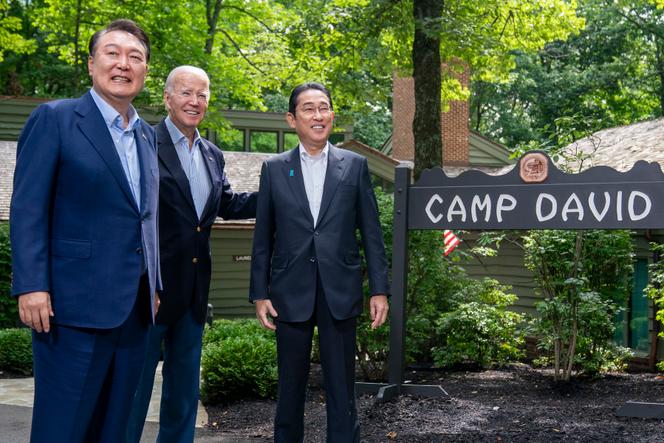

Japan and South Korea torn between Chinese threats, American pressure and weight of colonial history

The consolidation of security relations between the United States, South Korea and Japan, which took place on Friday, August 18, at Camp David in Maryland, has given rise to a great deal of talk about the new geostrategic pole being formed in Northeast Asia.
The cooperation was brought about in part by the deteriorating international context, marked by the war in Ukraine, the Chinese threat to Taiwan, tensions arising from Beijing's territorial disputes with its neighbors and North Korea's military development. The same context has prompted the Joe Biden administration to turn to its bilateral alliances, such as the Quad (Quadrilateral Security Dialogue) with Australia, Japan and India; AUKUS with the United Kingdom and Australia; and the "Chip 4" alliance with Taiwan, South Korea and Japan in the highly strategic semiconductor market.
Triangular cooperation between the US and its South Korean and Japanese allies has always been imperfect. For decades, Washington has sought to institutionalize triangular military collaboration with Seoul and Tokyo. The Camp David agreement represents a significant step forward in this respect, given that it provides for annual trilateral meetings, joint maneuvers and the exchange of intelligence information.
At the same time, the cooperation seems rather fragile and carries the potential risk of further tension. President Biden and Japanese Prime Minister Fumio Kishida described the Camp David summit as "historic." But history is one of the very factors of uncertainty looming over the trilateral coalition. "The history of trilateral cooperation is something of a pendulum, with periods of progress in ties that are swiftly reversed after changes in the security environment or in political leadership, particularly in Japan and South Korea," stated Christopher Johnstone of the Center for Strategic and International Studies (CSIS).
Since taking office, Biden has sought to strengthen security cooperation with his two East Asian allies. This objective was facilitated by the conservative Yoon Suk-yeol taking office as president of South Korea in May 2022. Since then, he has worked hard to forge a rapprochement with Japan, seeking to downplay the "war of memories" that periodically sours relations between the two neighbors. This was further helped by his plan to use private funds to pay compensation to Korean victims of forced labor during the period of Japanese colonization (1910-1945). While this decision pleased Tokyo by putting an end to the lawsuits against the Japanese companies that exploited South Koreans, it aroused lively discontent among some in South Korea.
You have 52.77% of this article left to read. The rest is for subscribers only.
